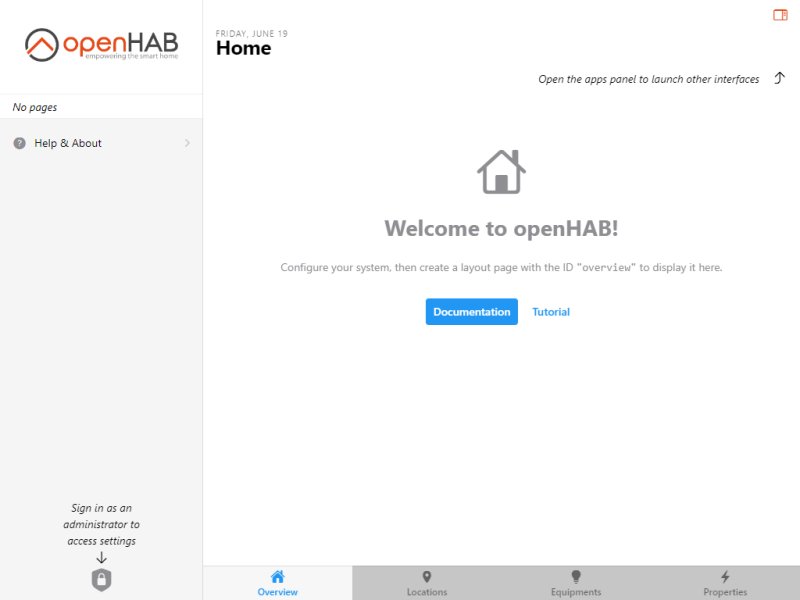openHAB 5.0.0 has been released, marking a significant update to this open-source home automation platform. Designed to unify and control various smart devices and gadgets, openHAB (short for Open Home Automation Bus) provides users with a flexible and privacy-focused solution that does not confine them to specific ecosystems or devices. This makes it suitable for casual users and tech enthusiasts alike who appreciate the ability to customize their smart home experience.
The platform allows users to automate a wide range of tasks, such as dimming lights, watering lawns, brewing coffee, or warming up cars at specific times. To get started with openHAB, users require a computer or server (like a PC, laptop, or Raspberry Pi) and the Java programming language installed on their system. Once set up, users can integrate an extensive array of smart devices, including smart plugs, bulbs, sensors, and thermostats from various brands like Philips, Nest, and Aeotec.
openHAB stands out due to its local installation, ensuring that user data remains private and stored within the home rather than on the cloud. Its cross-platform compatibility allows it to run on Windows, macOS, Linux, and lightweight devices. With over 300 available bindings, openHAB can connect with a wide variety of devices, supporting multiple protocols such as Zigbee, Z-Wave, and MQTT, among others.
Setting up openHAB is tailored to different operating systems, with specific instructions for Windows, macOS, and Linux/Raspberry Pi. Users can install the necessary bindings to connect their devices through the openHAB dashboard, allowing for seamless integration and automation.
While openHAB offers extensive customization and control over smart home systems, it does come with a learning curve. Users should possess some technical knowledge and familiarity with Java to maximize the platform's capabilities. Despite these challenges, openHAB remains a powerful tool for anyone interested in building a scalable and personalized smart home.
In summary, openHAB 5.0.0 is a robust open-source home automation platform that prioritizes user privacy, flexibility, and extensive device support. With its modular design and active community, it empowers users to create a tailored smart home experience. Looking forward, the future of openHAB might see even more integrations, improved user interfaces, and enhanced support for emerging smart technologies, making it an even more appealing choice for home automation enthusiasts
The platform allows users to automate a wide range of tasks, such as dimming lights, watering lawns, brewing coffee, or warming up cars at specific times. To get started with openHAB, users require a computer or server (like a PC, laptop, or Raspberry Pi) and the Java programming language installed on their system. Once set up, users can integrate an extensive array of smart devices, including smart plugs, bulbs, sensors, and thermostats from various brands like Philips, Nest, and Aeotec.
openHAB stands out due to its local installation, ensuring that user data remains private and stored within the home rather than on the cloud. Its cross-platform compatibility allows it to run on Windows, macOS, Linux, and lightweight devices. With over 300 available bindings, openHAB can connect with a wide variety of devices, supporting multiple protocols such as Zigbee, Z-Wave, and MQTT, among others.
Setting up openHAB is tailored to different operating systems, with specific instructions for Windows, macOS, and Linux/Raspberry Pi. Users can install the necessary bindings to connect their devices through the openHAB dashboard, allowing for seamless integration and automation.
While openHAB offers extensive customization and control over smart home systems, it does come with a learning curve. Users should possess some technical knowledge and familiarity with Java to maximize the platform's capabilities. Despite these challenges, openHAB remains a powerful tool for anyone interested in building a scalable and personalized smart home.
In summary, openHAB 5.0.0 is a robust open-source home automation platform that prioritizes user privacy, flexibility, and extensive device support. With its modular design and active community, it empowers users to create a tailored smart home experience. Looking forward, the future of openHAB might see even more integrations, improved user interfaces, and enhanced support for emerging smart technologies, making it an even more appealing choice for home automation enthusiasts
openHAB 5.0.0 released
openHAB is an Open-Source home automation platform that lets you unify and control various smart devices and gadgets.


